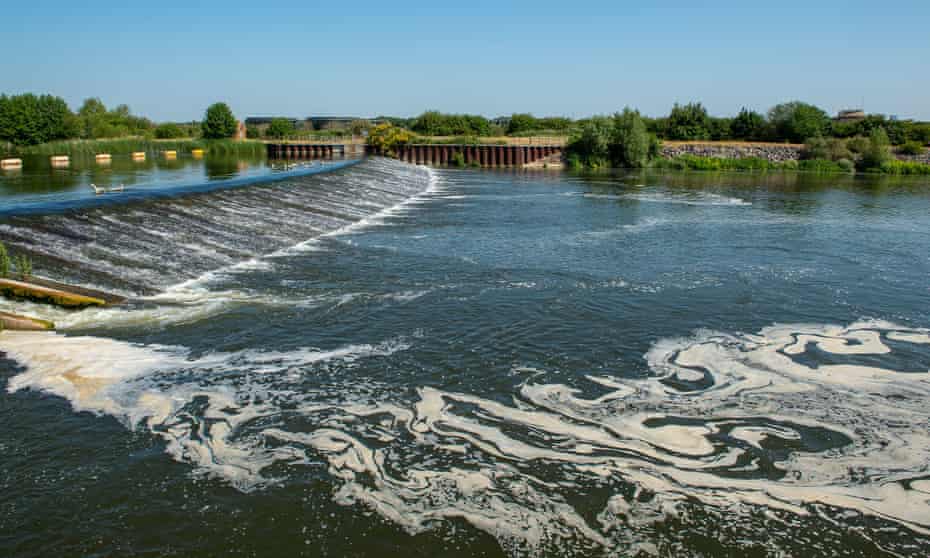Cutting sewage spills may be far cheaper than UK ministers predict, say experts
Figure of GBP150-660bn to cut raw sewage discharges into rivers was quoted by Tory MPs and environment minister

Government claims that cutting the millions of hours a year of raw sewage being discharged into rivers by water companies would cost up to GBP660bn have been challenged by experts.
On Tuesday night, peers kept the pressure on the government to enshrine a duty in law on water companies to reduce the dumping of raw sewage into rivers and seas.
The House of Lords backed by 213 votes to 60 a proposal to place a new legal duty on water companies to “take all reasonable steps” to prevent sewage discharges.
This came after an 11th-hour U-turn by ministers who promised they would table their own amendment into the environment bill to place a legal duty on the firms.
Zac Goldsmith confirmed the government would enshrine within the environment bill “a direct legal duty on water companies to progressively reduce the adverse impact of storm overflows”.
But a row was brewing over ministerial claims that the cost of cutting sewage discharges could be up to GBP660bn.
Water companies released raw sewage into rivers more than 400,000 times last year via storm overflows, amounting to more than 3.1m hours. These are allowed to be used only in exceptional circumstances, such as after extreme rainfall.
The environment minister, Rebecca Pow, has told MPs that reducing these spills could cost between GBP150bn and GBP660bn, but did not say how she arrived at the figures.
Conservative MPs quoted the same figures last week to constituents, telling them it would be irresponsible for any government to spend an estimated preliminary cost of anywhere between GBP150bn and GBP650bn to transform the entire sewage system.
But it is understood that in an analysis by the storm overflows taskforce, made up of the Environment Agency, the water industry and Ofwat, which is yet to be published, much more modest costings have been estimated for tackling the scourge of raw sewage discharges.
Sources say the figure of GBP660bn appears nowhere in the report. The Angling Trust said the report cites a range of lower-cost options for progressively dealing with the worst and most damaging sewage discharges ranging from GBP3.9bn to GBP62.7bn, with an impact on average water bills of between GBP19 and GBP58 a year.
It is also understood to estimate that an overall plan to reduce spills from storm overflows to an average of 10 a year in sensitive areas would cost between GBP13.5bn and GBP21.7bn.
Christine Colvin, from the Rivers Trust, said the huge range in the government’s figures – between GBP150bn and GBP650bn – indicated a low level of confidence in them.
She said the real costs could be substantially lower, and that tackling the scale of raw sewage pollution did not require complete separation of the sewerage systems, because some of the system actually worked already. “Nobody is proposing digging up our entire sewerage network and starting from scratch,” Colvin said.
“We know that nature based solutions are more difficult to cost, but in some places can be cheaper. They also bring multiple benefits – they help nature’s recovery, can provide new green and blue spaces and take up rather than emit carbon.
“These need to be considered seriously by water companies, developers and local government as an upstream solutions … we also need to consider the cost of pollution into our rivers and of not acting. At the moment that is being externalised on to the environment and the next generation. This is not something we should justify or continue.”
Hugo Tagholm of the campaign group Surfers Against Sewage said putting a figure of GBP660bn into the public domain was misinformation designed to scare the public.
“The figures are somewhere in the region of between GBP3.7bn and GBP62.bn to deal with the worst of the sewage pollution. This is well within the profits and dividends of these companies and if it were to be passed on to the bill-payer, it could be done at an affordable level.”
Analysis published by the Guardian last year showed the nine English water companies had paid out dividends of GBP57bn over the three decades since privatisation.
A spokesperson for the government said the report by the storm overflow taskforce would be released shortly. They said the environment bill would be back in the House of Commons next week.